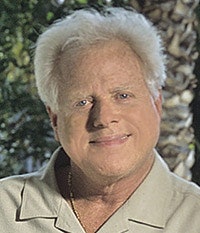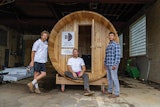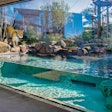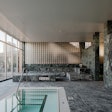For the builder segment of our State of the Industry issue, we spoke we three industry leaders to serve as our “builder voices.” In these profiles, they share how their businesses fared last year, their strategies for success and their vision for the future. For 2013, we spoke with Carvin DiGiovanni, Scott Cohen and Brian Van Bower.

For years now, Brian Van Bower, has been stepping forward as one of the industry’s most charismatic leaders and articulate advocates. We recently caught up with Brian by phone and as always, he was flush with opinions and insights about the current state of the industry and its future.
Are the tough times finally in the rearview mirror?
I wouldn’t go so far to say that recession is completely behind us. I will say that the throughout the slump, the upper end of the market remained fairly stable. In our business, we were holding steady up until last year and then everything exploded. Now we’re as busy as we’ve ever been. In fact, I would say that 2012 was in many ways the best year I’ve ever had in business. Not necessarily just in raw dollar amounts or number of jobs, but in the variety of projects, overall quality of the work and the fact that people paid their bills on time.
I don’t think the middle and lower end of the market have come back as far just yet because they were so deeply impacted by the recession and financing for work isn’t readily available to large numbers of mid-range clients. I have heard from people I talk to at trade shows and through the Genesis 3 programs that many are already having a banner year, so the news right now is mostly encouraging.
As for whether or not the recent slump is in the rearview mirror, I don’t think we can say that without qualification. We may never completely find our way back to the boom years when consumers were practically being handed money whether they deserved it or not. Because of that I’d have to say I remain guardedly optimistic.
Would you say survival and even success during the tough times depended on people making appropriate adjustments?
You always should consider how to improve your business, in good times or bad. Still, even some people I know who have evolved professionally and are capable of working on a very advanced level are still challenged by the current market and haven’t come back to where they’d like to be. Yes, there’s a great deal of good news, but there are still specific markets where business remains slow.
It’s tough to make accurate generalizations because there are so many factors that can impact someone’s business. Many, if not most of the people I talk to are those who value education, and they are mostly saying they’re doing well. I recently attended a Genesis 3 class taught by Anthony Archer-Wills and Dave Duensing, who are masters in the pond and stream business. The class was made up of people from all over the country, particularly the South and Midwest. Almost everyone there I talked to was optimistic about this year and looking ahead.
Are you confident the overall economy is headed in the right direction?
I’m certainly not an economist, but we all watch the news and read the newspaper. There’s no question many of the large indicators are going in the right direction; the stock market is on a roll, unemployment is down and the housing market is rebounding in most regions.
Without getting too much into politics, I don’t know whether or not that is due to the person sitting in the top chair or the party that’s in charge. We do know there’s a cyclical nature to economic trends and depending on where we are in those cycles, it’s always going to have an effect on how well people are doing.
To a large extent, socio-economic factors are always going to be beyond the control of individual businesses, so the key to success is to always try to up your game and raise your sights regardless of the economic climate. There’s never a bad time to educate yourself and chart a course for success based on self-examination and setting achievable goals. No matter the economic conditions or which party is in power, you should always prepare yourself to be successful.
Many people in the industry express deep concerns about government regulations becoming more and more of a problem. Do you share that concern?
Yes, I would sing that same song. I’ve long thought that many who work in the public sector have way too much time on their hands. In trying to justify their existence they’ve become far too nit-picky, and that can sometimes limit what you can do for the client or dramatically increase the time and expense required to get things approved. All of that can be tremendously frustrating.
In my business, I see that issue often by way of comparisons between working in the U.S. opposed to the experiences we have in other countries, where a lot of those obstacles go away or are at least much less of an issue.
How much of your business is in the international market?
Just about half, give or take a few percentage points. Right now we have two projects in Africa, one in French Polynesia, another in Sri Lanka, several throughout the Caribbean, Canada and proposals for one in Thailand and another in Fiji.
When Genesis 3 conducted classes in Germany, we had a strong number of attendees from all over the country and Switzerland. Most people in the U.S. probably don’t think much about the German market one way or the other, but when we were there it was obvious there’s an active market with great interest in custom aquatic design. Outside the classroom in my own business, I’ve found great success working abroad; it can be tremendously rewarding both financially and creatively.
I’ve often wondered whether or not that is an indication that the demand for aquatic environments is expanding in those countries or just that our company is sort of cherry-picking those markets. Certainly there are some parts of the world that are trending upward and various clients or other professionals in those markets have been able to find us through referrals or online. I do believe the advent of online communication and marketing has in general made the world a smaller place, which affords some firms in the U.S. greater access to foreign markets.
None of that is to say that everyone in the U.S. pool and spa industry should all of a sudden offer services overseas. You have to be prepared to work abroad and understand the characteristics of those markets and their cultures. It can involve a great deal of travel, which means time and expense, and there can be significant logistical challenges that can be extremely difficult to manage if you’re not prepared.
Fortunately, our work is in the design realm, so we’re not as impacted by the challenges you run into when building off-shore, but it’s still something that requires careful planning and preparation if for no other reason it can mean spending a lot of your time away from home and your office.
Do you see more projects with conservative budgets these days?
I do, but it all depends on the clients you’re working with. We’re currently designing a project that you could categorize as upper mid-range for a couple who, although successful, still need to be mindful of where they’re spending their money. In this case, these are people who live in a nice home and have successful careers. Their house was worth $850,000 when they bought it and they’re going to probably wind up spending about $300,000 on their backyard. That’s a healthy percentage and hopefully they’re going wind up with something they’ll really love.
These are typical examples of clients who have the means to pay but they’re not Richard Branson or some other tycoon where money is no object. We have to be prepared to meet and hopefully exceed expectations within their budget range.
Across the board, while many people are more frugal with their budgets, prices have gone up. There was a time years ago when a $100,000 project was a big item, now we see many $300,000 to $400,000 projects that are the big items.
Because our practice is skewed toward the high end, most of the clients we’re working with are funding their own projects as opposed to securing financing of some kind. While purse strings have loosened at the high end, financing is still tough to come by for middle-class people who saw the value of their homes decrease significantly. That’s the part of the market that hasn’t come all the way back.
Nowadays, builders often look beyond the pool to the design of the entire backyard. Moving forward do you see that trend continuing?
I see it as I have for a long time now. There’s tremendous value and opportunity in looking at the entire environment and not just the water. There’s no question that a large segment of the industry has moved in that direction, and it’s no coincidence that those are many of the people who have remained strong during otherwise lean years. Expanding the scene, if you will, is something we’ve focused on through Genesis 3 from the start and it’s always drawn a great response from our students and members.
Genesis has been drawing about 10 percent to 15 percent of our students from landscape design professionals and landscape architects. We are planning to rename our space in the International Pool Spa Patio Expo as, “The Genesis 3 Design, Build, Landscape Pavilion” beginning with this year’s show. To that end, we are working toward a potential collaboration with the Association of Professional Landscape Designers (APLD) for them to join forces with us in the show. Some say that our expanded vision, coupled with the whole concept of elevating what you do and how you go about it, has forever transformed their businesses and even their lives. It’s a powerful concept.
Comments or thoughts on this article? Please e-mail [email protected].











































